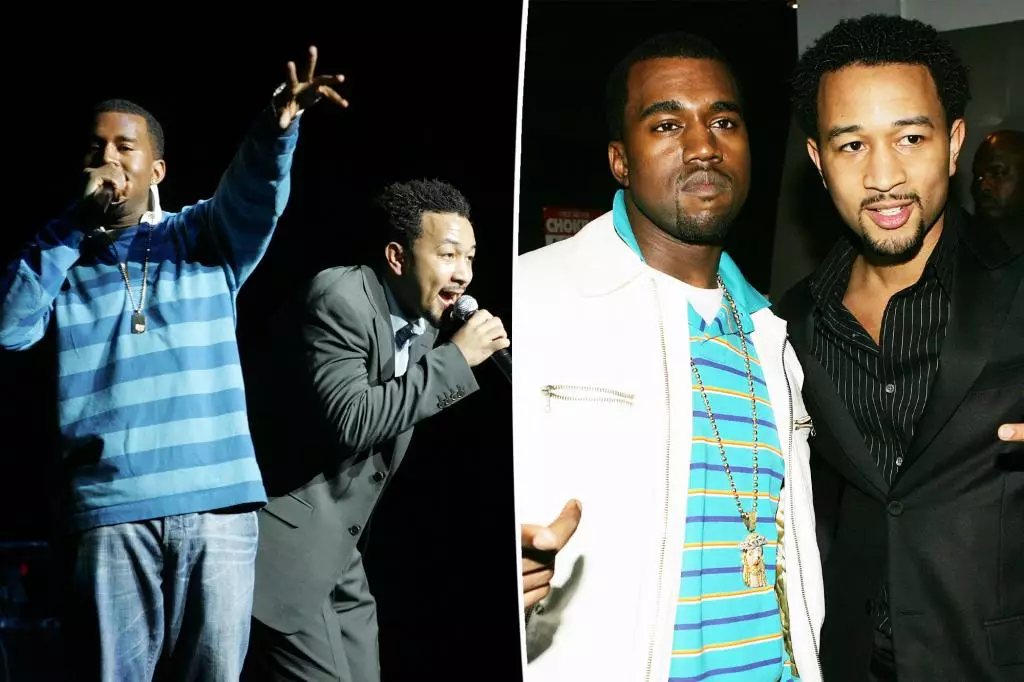John Legend’s candid reflections on his friendship with Kanye West reveal a narrative that embodies both the excitement of artistic collaboration and the inevitability of personal divergence. Their friendship blossomed in the mid-2000s, during a time when West was forging a revolutionary path in music. Renowned for his creativity and ambition, West was not merely a star; he was a beacon of optimism, inspiring those around him. Legend paints a picture of a vibrant partnership, one where shared aspirations fuelled their early success. The synergy they fostered under the GOOD Music banner laid a foundation for both artists’ careers, allowing Legend to break through an industry landscape that had previously rejected him.
A Concerning Decline
However, the tapestry of their friendship has become increasingly frayed as West has embarked on a troubling journey marked by erratic behavior and inflammatory ideologies. Legend’s reflections are layered with an undeniable sense of loss and dismay over West’s declining trajectory. Once celebrated for his keen insights and groundbreaking artistry, West now finds himself enveloped in controversy and polarizing rhetoric. The shift from creative powerhouse to a figure associated with antisemitism and far-right ideologies is not merely shocking; it is devastating. Legend touches on the profound changes that followed the untimely death of West’s mother, Donda. He attributes a portion of West’s unraveling to this tragedy, providing a glint of empathy amid the frustration.
The Weight of Influence
In a world where celebrity influence is magnified, West’s recent declarations have not only tarnished his legacy but have raised questions about the societal impact of such drastic shifts. Legend’s comments shed light on the broader implications: when a respected figure engages in hate speech, the repercussions resonate far beyond the individual. The music industry, which once heralded West as a visionary, must now grapple with the damage wrought by his words. Legend, though disheartened by his friend’s transformation, refrains from casting blame, acknowledging the complex interplay of mental health and loss. Yet, this perspective comes with its own challenges; in an era that demands accountability, how do we balance understanding with condemnation?
Legacy and Responsibility
As Legend navigates his own career, the shadows cast by West’s recent behavior serve as a cautionary tale. The question surrounding the legacy of artists who once inspired and empowered poses a difficult dilemma: can a creator retain their status when their actions contradict the very ideals they once championed? The dichotomy between their artistic brilliance and personal misdeeds complicates the narrative. Lose sight of the man behind the music, and the artist risks diminishing their impact—a tension highlighted vividly in Legend’s contemplation.
Ultimately, the connection between West and Legend is a poignant reminder of both the fragility of friendship and the profound ways in which personal struggles can manifest in public. As the music world watches this narrative unfold, it is a clarion call for reflection: how does one remain true to their values in the face of personal and professional turmoil?

